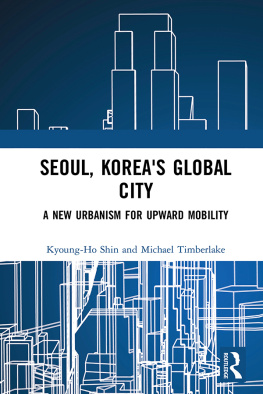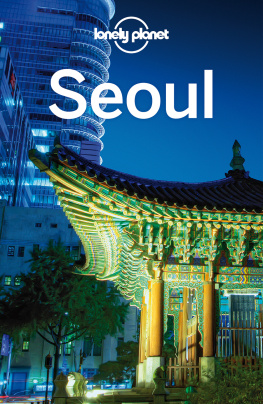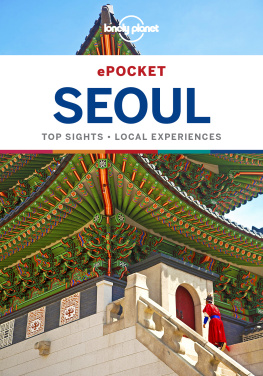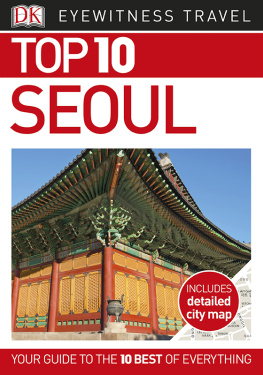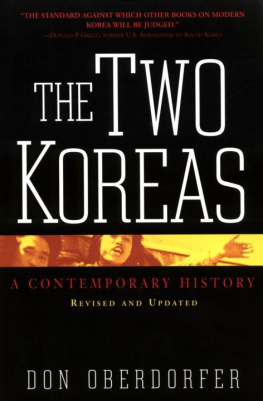Seoul, Koreas Global City
Seoul, as one of Asias rising global cities, has been a place where enormous changes in politics, industry, and culture have taken place over the last five decades. This book explores the new urbanism in Seoul from the perspective of global political economy, focusing on the contexts in which the city has witnessed the transformation of its population structure, such as the rise of the global urban middle class and the citys increased nodal function in commodity chains. The burgeoning signs of Seouls status as a global city are discussed in terms of transnational tourism and the frequency of study abroad, the immigrant community, and cross-border cultural flows. Examining the labour structures within the city, economic growth policy, the role of advanced information technology, and neoliberal urban development, the authors also examine the local response in the city to its emerging status. A study of the development of the Korean capital and its deep embeddedness in the world economy, Seoul, Koreas Global City will appeal to scholars of sociology, geography and economics with interests in political economy, urban studies, and Asian studies.
Kyoung-Ho Shin is Professor of Sociology at Northwest Missouri State University, USA and the editor of Multicultural Education in a Global Era.
Michael Timberlake is Professor Emeritus in the Department of Sociology at the University of Utah, USA. He is the editor of Urbanization in the World-Economy and the co-editor of What are Cities?
First published 2020
by Routledge
2 Park Square, Milton Park, Abingdon, Oxon OX14 4RN
and by Routledge
52 Vanderbilt Avenue, New York, NY 10017
Routledge is an imprint of the Taylor & Francis Group, an informa business
2020 Kyoung-Ho Shin and Michael Timberlake
The right of Kyoung-Ho Shin and Michael Timberlake to be identified as authors of this work has been asserted by them in accordance with sections 77 and 78 of the Copyright, Designs and Patents Act 1988.
All rights reserved. No part of this book may be reprinted or reproduced or utilised in any form or by any electronic, mechanical, or other means, now known or hereafter invented, including photocopying and recording, or in any information storage or retrieval system, without permission in writing from the publishers.
Trademark notice: Product or corporate names may be trademarks or registered trademarks, and are used only for identification and explanation without intent to infringe.
British Library Cataloguing-in-Publication Data
A catalogue record for this book is available from the British Library
Library of Congress Cataloging-in-Publication Data
Names: Shin, Kyoung-Ho, author. | Timberlake, Michael, author.
Title: Seoul, Koreas global city : a new urbanism for upward mobility /
Kyoung-Ho Shin and Michael Timberlake.
Description: Abingdon, Oxon ; New York, NY : Routledge Books, [2020] |
Includes bibliographical references and index.
Identifiers: LCCN 2019058412 (print) | LCCN 2019058413 (ebook) |
ISBN 9781138564237 (hardback) | ISBN 9781315122298 (ebook)
Subjects: LCSH: Urbanization--Korea (South)--Seoul. |
Globalization--Korea (South)--Seoul. | Economic development--Korea
(South)--Seoul. | International economic relations--Social aspects. |
Seoul (Korea)--Economic conditions. Classification:
LCC HT384.K62 S685 2020 (print) | LCC HT384.K62 (ebook) | DDC 307.76095195--dc23
LC record available at https://lccn.loc.gov/2019058412
LC ebook record available at https://lccn.loc.gov/2019058413
ISBN: 978-1-138-56423-7 (hbk)
ISBN: 978-1-315-12229-8 (ebk)
Global cities are central points of industrial shift, such as declining manufacturing cities of the global North and the rise of industrializing cities in the South today. The global shifts affect tremendously social fabrics within the city such as employment structure, gender relations, and others. Global cities in Asia are transformed fundamentally, both in built environments and in the social relations with not only the rising middle class and changing constellations of groups by occupation, ethnicities, citizenship status, and income, but also the increasing number of arriving travelers. Seoul as a rising global city in Asia has become a central node in global inter-city networks. Seoul was ranked 20th in the world city network by advanced business service (Taylor 2004). The number of foreign tourists who arrived in Seoul in 2017 was 9 million (CNN 2017), which made the city a popular destination (ranked 16th) in the world. In researching Seoul as an Asian global city, therefore, it is reasonable to focus on the impacts of economic globalization and its consequences within the city. However, while many studies have been done on the urbanization process of Seoul in regard to globalization over the past decades, only a few studies have analyzed it in the conceptual framework of an Asian global city from the world/global city. In fact, little attention has been paid to probe in what ways urban issues such as labor structure and inequality within the city are connected to the global economy through the dynamics of regional economy and how government and people in the city react to the competitive global market and global forces from the perspective of urban sociology. Scholarly works need to focus on what the real picture of changes in the global cities of the region is and how to understand the local and regional contexts of the citys changing position in global urban hierarchy (Timberlake and Ma 2007).
A number of studies on Asian political economy have focused on various facets of the regions development including Asian industrialism and labor control (Deyo 1989), and the rise of Asia (Arrighi 1998), and global rebalancing (Pieters 2011). Asian countries have successfully shifted their industrial stages from labor-intensive manufacturing to capital- and technology-intensive manufacturing in value-added hierarchies, making themselves major competitors in the global economy. No doubt, policies and strategies by Asian countries, acting on and reacting to the dynamic global economy, have had great impacts on urban development. Scholarly analyses of urban development in the region are keen on the statecorporate relations, states intervention, major strategies of economic activities, and labor relations within the city (Chen 1995; Evans 1995; Cho 1997; Shin and Timberlake 2006). The global city literature leads us to expect that its labor force would become increasingly polarized, immigration increasingly marginalized, and a sexual division of labor by which women workers are being disadvantaged relative to men. Sassens (1991) seminal work, The Global City: New York, London, and Tokyo, explains that the high-wage postindustrial professions co-exist in the midst of poverty and unemployment within the global city. Social disparities in income, housing, and health are said to be greater in such cities, and marginalized immigrants are particularly disadvantaged in the process of globalization. Cities such as Seoul, as a key regional articulate, might gain increasing control functions, despite a less expansive scale than the world cities of New York, London, and Tokyo (Sassen 1991). The question whether such changes also characterize other important global cities that are further down the global urban hierarchy is an open one.
Globalization brings new organizational, spatial, and social arrangements through international economic transactions of production, distribution, and consumption. Currently, increasing numbers of cities in Asia are experiencing a rising middle class as a consequence of the deepening global economy. Over the last two decades, scholarly attention has been given to the economic miracle and rising new middle classes which created the conditions for new lifestyles and the consumer culture in Asia (Fernandes 2006; Goodman 2008; Zhang 2010). The consumption by the middle class in the Asia Pacific region will expand from 23 percent of global expenditures in 2009 to 42 percent in 2020, while that of the European middle class will drop from 38 percent to 29 percent and that of North America from 26 percent to 17 percent, respectively (Robison and Goodman 1996). The urban middle class emblemizes the modern and prosperous nation, and the new image of comfortable lifestyles became the national standard for all Koreans (Yang 2012). In South Koreas development history, a relatively even distribution of economic growth has been importantly marked which includes about 53 percent of the population in the middle class (Kharas and Gertz 2010). However, the middle class sectors in society have been shrinking since the Asian financial crisis of 1997 and 1998, and continuously through the world financial crisis of 2007 and 2008. How do we need to understand this phenomenon?

